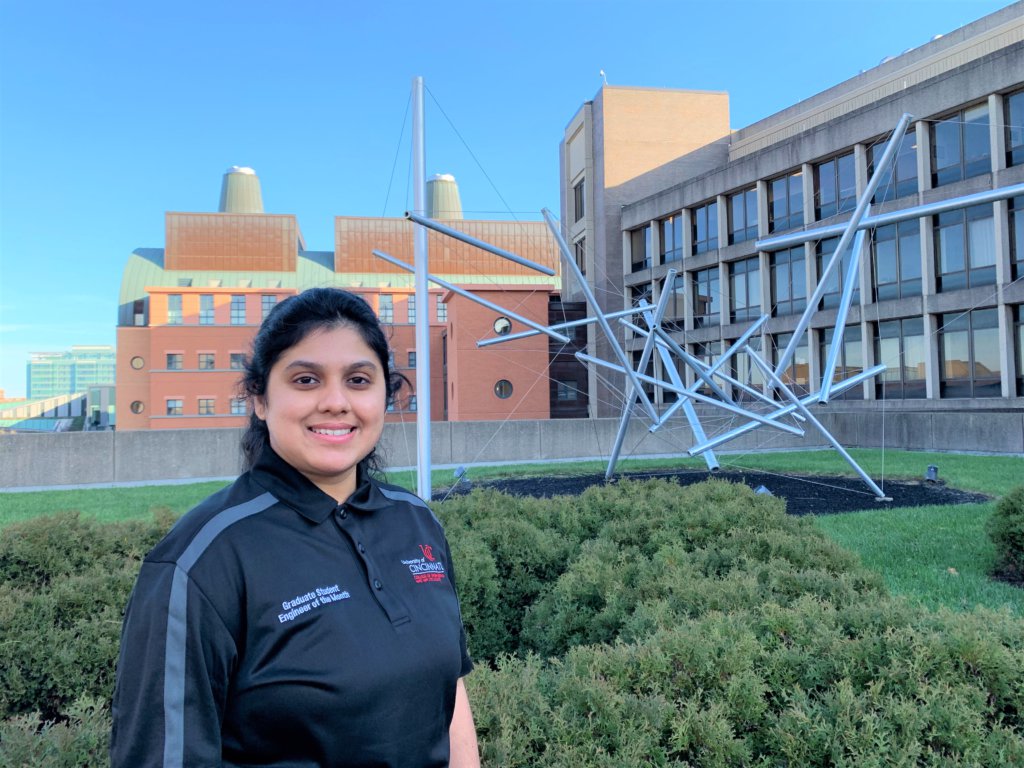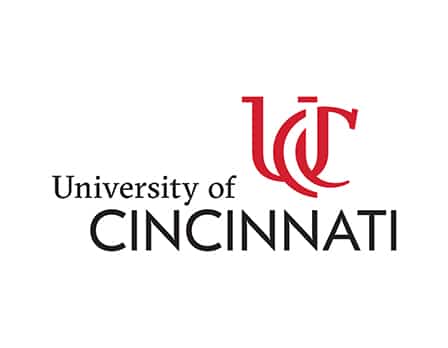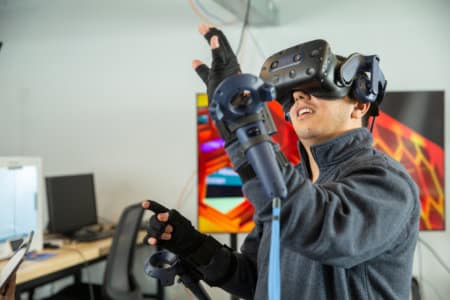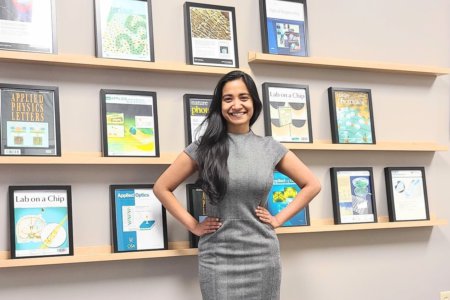Research at the University of Cincinnati’s College of Engineering and Applied Science transforms society. Discoveries made here are disruptive. Perhaps more importantly, what students and faculty do here impact everyday lives. Their bold, new solutions lead to innovative manufacturing technology, breakthroughs in urban flood research, life-saving devices, health-tracking sensors, and preparation for the next pandemic.
Akshata Upadhye was drawn to UC for this very reason. “I was very much impressed by the fact that UC ranks among the top public research universities in the US and is also referred to as one of the world’s most beautiful campuses by Forbes magazine,” she says. “Moreover, the research going on under the Intelligent Systems research groups was the best match for my research interests. And that is when I decided to become a Bearcat.”
The college’s faculty focuses their research on several Areas of Impact. These include Artificial Intelligence, Computer-Science Pedagogy, Cybersecurity, and Operating Systems and Computer Networks.
Upadhye initially pursued a master’s of engineering degree in computer science at UC. She later switched to the master’s of science path as her fascination for research in artificial intelligence deepened. “I got into machine learning during my undergraduate degree,” Upadhye says. “I realised that machine learning is all about solving problems with data, maths and computers and that it’s used in artificial intelligence to mimic human intelligence. Since then, it has been an intense passion for me. This passion became deeper during my time at UC.”

In her time at UC, Upadhye learned the importance of taking risks and stepping beyond her comfort zone to explore new opportunities, acknowledging the myriad possibilities in the world. Source: University of Cincinnati
Upadhye is part of the Department of Computer Science. Formerly part of another department, computer science was established as a separate department in 2022 in response to the field’s rapid expansion. UC sought to provide more resources and better facilitate the integration of computing concepts such as artificial intelligence, machine learning and big data across all CEAS majors.
“The demand for computer-science graduates is booming across the country,” says John Weidner, CEAS dean. “To stay competitive, JobsOhio committed in 2020 to invest US$100 million in UC, the Cincinnati Innovation District, and Cincinnati Children’s Hospital with the intent to work with industry to get a US$2 billion return on investment, including 15,000 STEM graduates. Computer Science is at the heart of this investment because STEM graduates must be well versed in the computing field.”
The department offers MS, MEng, and PhD programmes in computer science. It also runs a BS in Computer Science, which has a nationally recognised Top 5 co-op programme.
The MS is a research-based endeavour that provides you with the technical and research skills necessary for independent work on state-of-the-art technology. You can choose to specialise in one of the five research groups in Data and Knowledge Management, Experimental Computer Systems, Intelligent Systems, Internet Computing and Information Science, and Quantum Computing.
Upadhye works on developing novel machine learning algorithms, under the guidance of Dr. Raj Bhatnagar, to help computers interpret the context of human language more accurately. “Through machine learning, the process of natural language understanding can be automated for computers, thus eliminating the required human intervention,” she says. “Such algorithms have a broad range of applications in systems like smart assistants, chatbots, sentiment analysis, social media monitoring and many more. In my research, I utilise natural language processing techniques for processing unstructured texts derived from computational linguistics.”
Those aiming to expand their skills for the technical workforce while also developing professional skills that enhance their organisational effectiveness can opt for the MEng. It differs from an MS programme in that it is focused on direct industry application more than research.
The Doctor of Philosophy (PhD) programme trains graduate students to develop their skills as independent, creative researchers capable of making significant original contributions towards advancing their technical field. You’ll benefit from excellent facilities, including research laboratories with state-of-the-art equipment in the areas of computer science, software systems, artificial intelligence, neural networks, and more. Every graduate laboratory has a mix of computers running the latest Solaris, Linux, or Windows versions. The best part? The programme offers connections with Cincinnati Children’s Hospital Medical Centre and UC College of Medicine, as well as area companies, further enriching your UC doctorate experience.
Interested? Click here to learn more about the University of Cincinnati’s College of Engineering and Applied Science.
Follow University of Cincinnati’s College of Engineering and Applied Science on Facebook, X, Instagram, LinkedIn and YouTube.













